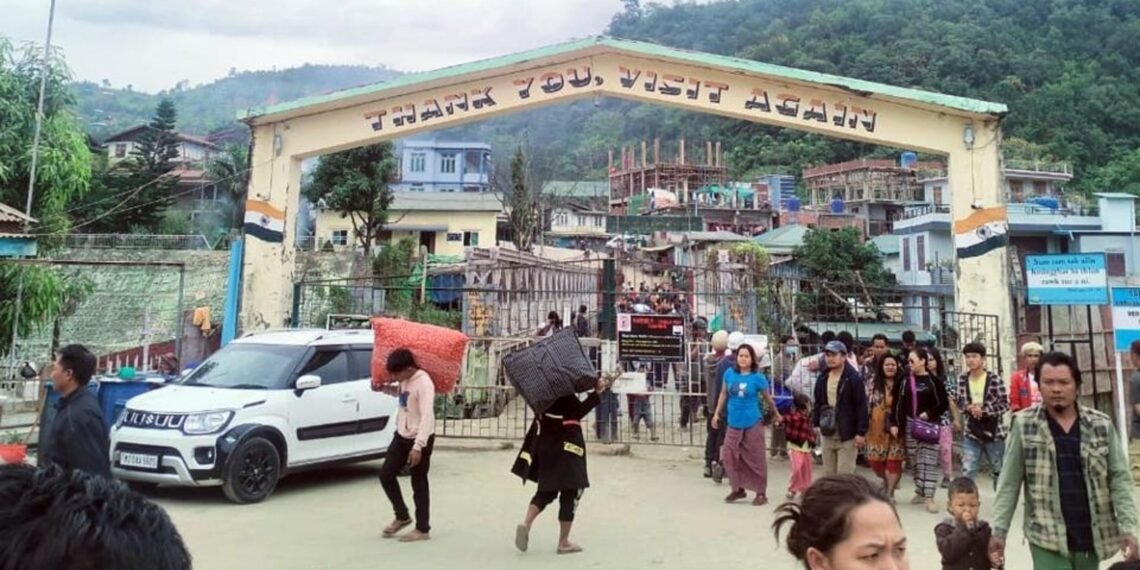The Nagaland government move affects generations-old residents from Kuki, Kachari, Garo, and Mikir communities, raising fears of marginalization and legal ambiguity.
BY PC Bureau
May 31, 2025 – In a significant development, the Government of Nagaland has issued a directive prohibiting the issuance of new Indigenous Inhabitant Certificates (IIC) to four non-Naga tribes—Kukis, Kacharis, Garos, and Mikirs—effective immediately. The order, dated May 26, 2025, was released by the Home Department of Nagaland and signed by Benjamin Longkapncs, Deputy Secretary to the Government of Nagaland.
The directive references a prior Cabinet meeting held on May 14, 2023, as well as an existing Line Permit (ILP) notification. It explicitly states that no new IIC will be issued to members of the Kuki, Kachari, Garo, and Mikir communities, who are considered non-Naga tribes in Nagaland. The order has been communicated to the Commissioner of Nagaland and all Deputy Commissioners for strict compliance and necessary action.
The Inner Line Permit (ILP) system, which regulates the entry of non-indigenous people into Nagaland, is central to this directive. The ILP framework aims to protect the cultural, social, and economic interests of the indigenous Naga population, and this new restriction appears to be an extension of that policy.
 ALSO READ: India Grapples with COVID Surge: Maharashtra, Delhi, Kerala See Sharp Spike
ALSO READ: India Grapples with COVID Surge: Maharashtra, Delhi, Kerala See Sharp Spike
The decision has far-reaching implications for the four non-Naga tribes– the Kuki, Kachari, Garo, and Mikir Communities– residing in Nagaland:
Restricted Access to Rights and Benefits: The Indigenous Inhabitant Certificate is a crucial document that grants access to various rights, including land ownership, government jobs, educational quotas, and other benefits reserved for indigenous communities in Nagaland. Without new IICs, members of these tribes may face significant barriers in accessing these privileges.
Impact on Residency and Livelihood: For Kukis, Kacharis, Garos, and Mikirs who have been living in Nagaland for generations, this directive could create uncertainty about their legal status. Those without an existing IIC may struggle to prove their residency, potentially affecting their ability to work, own property, or participate in local governance.
READ: Missing Arunachal Anti-Dam Activist Ebo Mili Resurfaces
Social and Political Tensions: The move is likely to exacerbate tensions between Naga and non-Naga communities in the state. The Kuki, Kachari, Garo, and Mikir communities may perceive this as an exclusionary policy, potentially leading to protests or demands for equal treatment. This could strain inter-community relations in an already sensitive region.
The directive reflects the Nagaland government’s ongoing efforts to safeguard the interests of the indigenous Naga population amid concerns over demographic changes and resource allocation. However, it raises questions about the inclusivity of such policies in a multi-ethnic state like Nagaland, where non-Naga tribes have coexisted for decades.
Cabinet Direction Government of Nagaland –
No new Indigenous Inhabitants Certificate to 4 -Non Naga Tribes in Nagaland – KUKI, Kacharis, Garos & Mikirs.#liangmaipost pic.twitter.com/AANelNtNIn— 𝐋𝐈𝐀𝐍𝐆𝐌𝐀𝐈 𝐏⭕𝐒𝐓 (@LIANGMAIPOST) May 31, 2025
The decision may also set a precedent for other northeastern states with similar ILP systems, such as Arunachal Pradesh and Mizoram, potentially influencing their policies toward non-indigenous residents.
While there has been no official statement from representatives of the Kuki, Kachari, Garo, or Mikir communities as of now, community leaders are expected to respond to the directive in the coming days. The government has directed its officials to ensure strict implementation, but it remains to be seen how this policy will be enforced on the ground and whether it will face legal or social challenges.
As Nagaland navigates this complex issue, the directive underscores the delicate balance between protecting indigenous rights and fostering coexistence in a diverse region. For now, the Kuki, Kachari, Garo, and Mikir communities face an uncertain future in the state, with their access to fundamental rights hanging in the balance.














